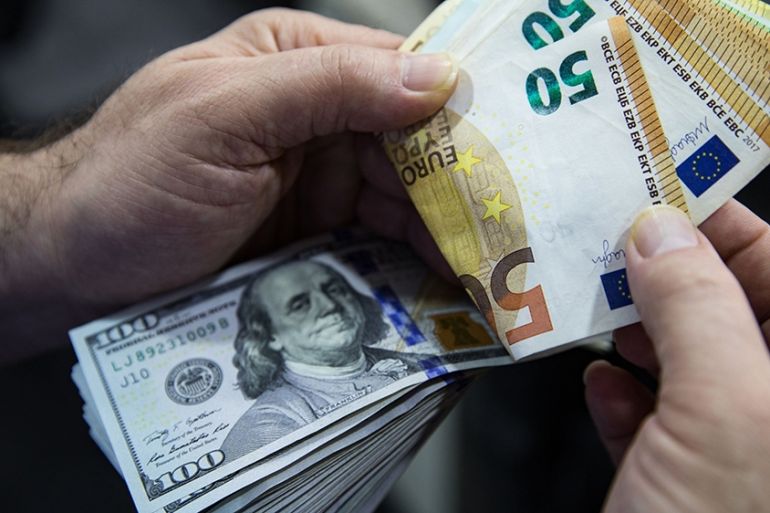Turkey cuts interest rates for the ninth straight time
Expectations of foreign funding have buoyed Turkish lira in recent days, giving central bank room to slash rates again.

Taking advantage of a stabilising lira, Turkey’s central bank cut its benchmark interest rate for the ninth straight time on Thursday and struck a hopeful tone on the trajectory of the economy as it navigates the fallout of the coronavirus pandemic.
In a widely expected move, Turkey’s monetary policy committee led by central bank chief Murat Uysal, further lowered the benchmark rate by half a percentage point to 8.25 percent, continuing an aggressive easing cycle that began last July when it stood at 24 percent.
Keep reading
list of 3 items‘Adapt or die’: Turkey restaurants rise to coronavirus challenge
Lira firms against dollar as Turkey searches for foreign funds
Describing the cut as “measured”, the committee said there were signs that Turkey’s economy may have bottomed out earlier this month after activity cratered in April in the wake of COVID-19 containment measures.
This latest rate cut follows a period of stress for the Turkish lira that hit a record low two weeks ago as investors fretted over the country’s depleting foreign exchange reserves and high external debt costs. The currency has since rallied on expectations of foreign funding.
On Wednesday, the central bank said Turkey had secured a tripling of its currency-swap agreement with Qatar. The deal – valued at $15bn – will provide Turkey with much-needed foreign funding to reinforce its depleted reserves.
Ankara had been urgently seeking access to funds from Doha and elsewhere to head off a potential currency spiral, and analysts say tens of billions of dollars might be needed. A senior Turkish official told Reuters news agency that talks are continuing.
The lira is down about 13 percent so far this year but was flat after the interest rate cut was announced, which drove Turkish real rates adjusted for inflation deeper into negative territory for lira depositors.
The central bank said cheap commodities prices should keep inflation in line with its forecast of 7.4 percent by year end, despite recent lira depreciation caused by “global developments”.
While there was a “pronounced” economic weakening in April, the bank said there are signs in the first half of May “of bottoming-out following the steps taken towards partial normalization”.
It is monitoring normalisation steps in other countries, and expects the current account balance – the ledger of the country’s transactions with the rest of the world – to follow a “moderate course” this year as imports are restrained, it added.
The fallout from the outbreak has hammered domestic demand, tourism and exports and is expected to tip the economy into its second recession in less than two years.